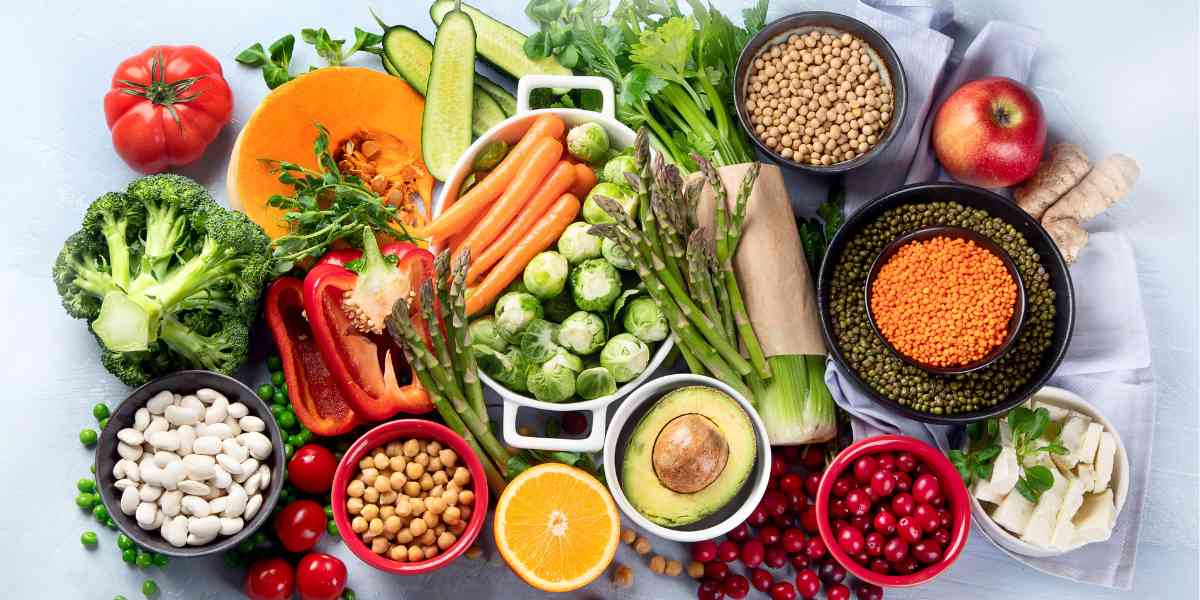Why Seasonal Meal Planning Is Vital for Nutritional Balance in a Vegetarian Diet
As you journey to becoming a vegetarian, finding the right balance in your daily meals can be like going through a journey into the unknown without a compass–challenging. Seasonal meal planning, especially, isn’t just about fresh veggies and fruits; it’s actually the cornerstone for nutritional equilibrium.
Here are some reasons why syncing your diet with the rhythm of the seasons holds the key to unlocking a well-rounded vegetarian lifestyle that’s perfect for you.

The Benefits of Local and Seasonal Produce
Starting a veggie-diet path will help you see that it’s more than just dieting or cutting out on your meat. It’s more like you’re tasting one delicacy to another, to find your must-have nutrients.
And to make sure you’re not cutting corners with your nutritious intakes, it’s best to take on your table local and seasonal produce. It’s why most seasoned vegetarians would tell you that many nutrient-rich, flavor-packed food powerhouses can be found at different times each year.
There’s more to wait for the changing of seasons for you now, it’s where you can’t wait to taste many local veggies and fruits that are picked at their peak. And more than the crispiness and taste, they’re sure to give you a ton of nutritional values than their off-season counterparts can offer.
Those that have to be ferried off from afar will come as weary-looking as the nutrients they can provide. It can even deplete the levels of the essential vitamins you get from them, like C and B, nutrients, which is quite crucial to your diet.
Aside from these nutritious attributes, try crunching into an apple harvested from someone’s orchard down the road or tossing spinach into your salad that was still rooted in nearby soil a few days ago–they’d be far more tasty and crispy than your cleanly-packed fruits and veggies from the nearest shop.
Also, as you buy from local farmers’ markets or subscribing to a CSA (Community Supported Agriculture), you not only help boost your nutrients’ intake, but you also help strengthen community ties.
And aside from supporting sustainable farming practices, it’s also where your health meets ethical consumption by helping the people and the community of growers that produced them.

Winning Over Nutrient Deficiencies
When you have already mastered the management of your vegetarian diet, it now calls for a keen eye on your potential nutrient gaps. It’s no longer a secret that bypassing animal products can make you deficient in iron, calcium, and B12, among others. But it’s where the wisdom of your seasonal meal planning can help you a lot.
In spring and summer, leafy greens like spinach and kale are not just your delicious salad ingredients. They form part of your diet that can provide you with potent sources of iron and calcium. As autumn rolls in, available squash varieties give you the richness of A and E vitamins in every delectable dish.
And, although you might feel the coldness and bleakness of winter, there are more citrus fruits in this season to load you with vitamin C. It’s the best for your nutrient arsenal during these freezing months.
As you follow the natural calendar of produce availability, you’ll likely cover all bases and pack yourself with nutrients without falling into redundant eating or cooking boredom. Even the humble potato–a winter staple– can give you more vitamin C than you might have imagined. This reality will prove that even those commonplace foods you usually pass up have their seasonal place.
However, if these much-needed nutrients remain elusive on your plant-based regimen, like a high B12 source, you might need to use your HSA funds to cover health supplements as part of your transition strategy. This way, you’ll not only maintain optimal health, but you’re also free from financial stress while transitioning to your vegetarian nutrition.

The Wholeness of Seasonal Eating
Eating “seasonally” offers more than your nutritional boost; this can enhance your overall plant-based lifestyle. Imagine biting into that first strawberry of summer or carving a fall pumpkin–it’ll be a pure and delightful dining experience.
Your body naturally craves what each season can provide. Winter soups that brim with root veggies, like sweet-smelling potatoes, can warm you inside out no matter how cold it is outside. And summer’s water-rich watermelons help you hydrate during sweltering days.
Plus, going into seasonal eating not only supports your diet but you also help reduce carbon footprints by minimizing transportation. Many local markets are outlets for farmers and fresh food producers in the locality, promoting biodiversity and sustainability.
To conclude, the act of aligning your diet with nature’s tempo fosters your connection with it, not just your diet and nutritional enrichment. You’ll experience how you link to your food sources, the planet’s natural cycles, and the community around you.
It’s actually like a deeply rooted practice that’s as significant for your well-being as it is to establish a sustainable lifestyle.
If you make this, please leave a review and rating if you liked this recipe! ★★★★★






